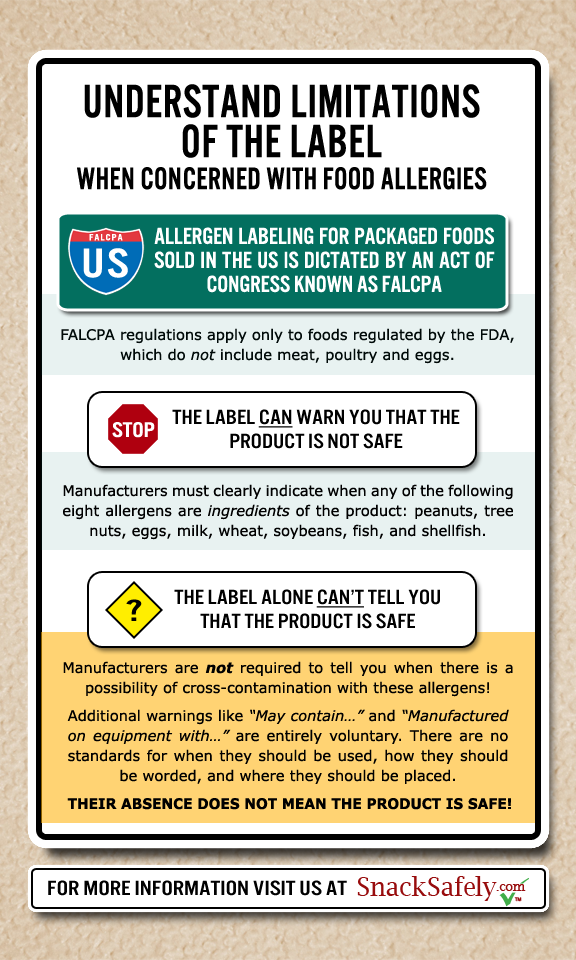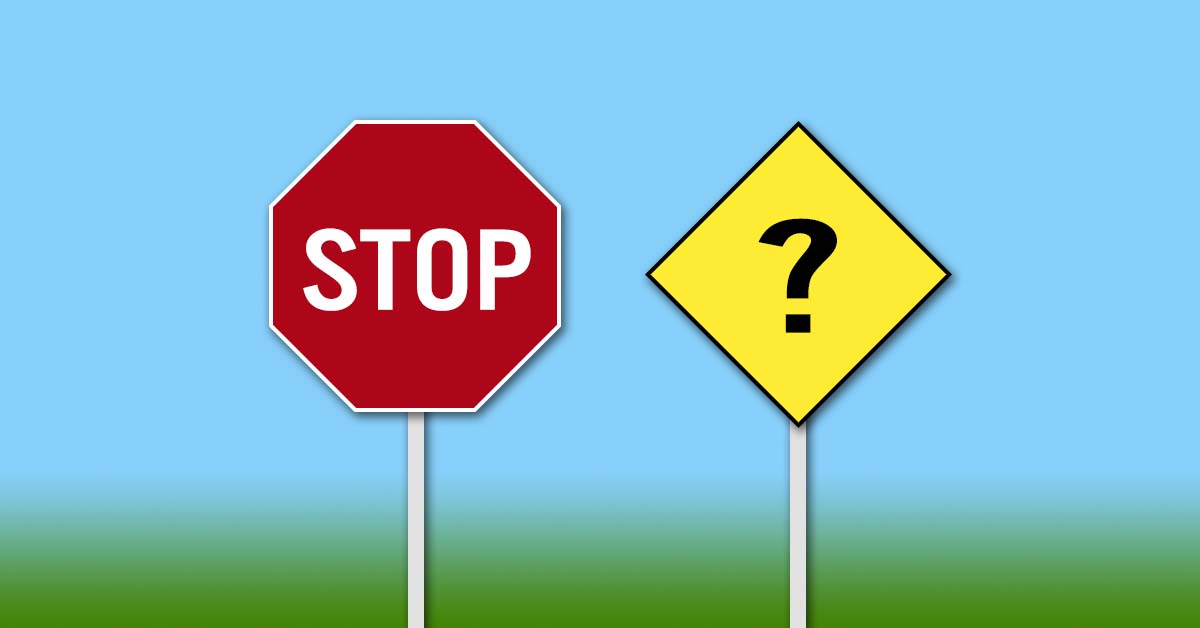United States labeling regulations are weak with regard to the potential for allergen content of a food product. There are many misconceptions about the reliability of the warnings provided on the label.
Understanding what the label CAN and CAN’T tell you about the allergen safety of a food product is an important step toward safeguarding your family.
This graphic sums up the limitations under US regulations:

Due to limitations in US labeling laws, there’s NO way to know whether a product is safe for individuals with food allergies by reading the label alone!
Why would a manufacturer choose not to provide those warnings and how do they decide? Click here for an explanation.
Educate your friends and family by sharing this graphic using the buttons below:







So….literally anything she eats could kill my baby?
Jen, I had the exact same thought!
Y.e.s.,please be careful, I sympathise with the young ones, It’s up to us to stay informed!
I’m not ‘pro’ for big government when it comes to most topics. But this is one area our government really needs to step up to the plate and require manufactured foods be labeled for all possible cross contamination with allergens!!!! Help us give our children every opportunity for a healthy long life.
You will be soon..
What about when the labeling explicitly states that it is free of an allergen?
The FDA provides no guidelines for when this claim can be made! It all comes down to trust of the manufacturer.
Really the truth is there is no heavy monitoring of these food manufacturers either, so unless a consumer gets sick and can pinpoint a specific product or someone catches them, if they make a mistake it’s an afterthought.
Additionally unless your food allergens are only the big 8 in the US, there are very sneaky statements like “natural flavor” and “Spices” they can use to avoid specifically stating certain ingredients that could be harmful to someone with a non-big 8 allergen or dealing with multiple food allergies.
In Georgia and other states, new food manufacturers can get a license to create food products thru what is known as a “Cottage Kitchen” license. These kitchens are not regulated and there is no education on food allergens required. Statements like “food allergy free” are acceptable as long as the top 8 food allergens are not in the product… which is crazy. Even companies like Herbalife put an “Allergen Free” statement on products globally and then this summer recalled it only because a consumer complained that it was false representation. (NO one at the FDA regulated that on a BIG company.) The product contained vanilla, cranberry and banana- (3 of that consumers 10 food allergens) but the store representative (Health consultant) continued to try to sell the product claiming Herbalife knew best about food allergies and it was food allergy free.
We are new to food allergies. Our son cannot have wheat, rice, eggs, dairy, peanuts, coconut, or sesame because if his ieg blood test. We will also be getting spt done as well.
I would like to know, what products ARE safe? Is there a resource where food allergy parents report the products they have trouble with? Or ones they have safely consumed?
We are really struggling to find products that are safe for him.
My son just found out (he is 3) that he is allergic to soy, dairy, eggs, milk, cashews, peanuts, walnuts, chicken, pork, wheat, barley, oats, potaotes (white), tomatoes, oranges, corn, codfish, scallops, shrimp, and yeast. Along with ALL of the outdoor allergies. So far I have found a few things he can eat besides beef, turkey, veggies, and fruits, THANKS TO ENJOY LIFE!